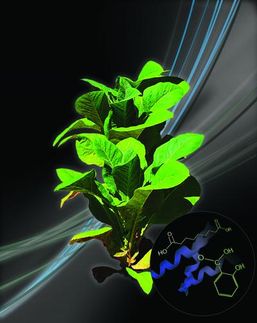European biotech industry identifies the real culprits causing food price rises
Advertisement
The European Biotech Industry Association (EuropaBio) questions the premises and the methods used by recent reports, including the recently leaked and unofficial World Bank internal note which claims that 75% of the recent price increase of food is due to increasing demand for biofuel. The World Bank document downplays poor 2007 harvests, pays no attention to the effects of increased meat consumption in Asia, discounts USDA figures showing that wheat plantings increased in 2007, disregards the impact of increased energy prices on food prices and overlooks the impact of short term export bans and speculation. In doing so, and entirely out of step with G8 leaders and FAO policy makers, the World Bank's internal document almost entirely ignores the benefits that biofuels can bring to farmers in the developing world.
Major one-off effects were downplayed in the document, particularly the poor 2007 rice harvest in several South East Asian countries, which include Thailand and Vietnam, the two biggest rice exporters in the world, and the catastrophic wheat harvest in Australia, due to its one-in-a-century drought. Australia lost over 60% of its bread wheat harvest in 2007, and essentially ceased to export. Cereals are not interchangeable; wheat used to make bread cannot be replaced by other cereals for bread making. The Australian lost harvest represented a major blow for international bread wheat trade, and consequently led to vast price increases.
The paper also ignores the structural increase in meat consumption in many Asian economies, and the knock-on effect on demand for animal feed. Because of increased meat consumption, China has generated a larger increase in demand for commodity crops than the entire global biofuel sector.
The World Bank document suggests that increased maize plantings in the U.S.A. in 2007 led to decreased planting of wheat and rice. USDA production figures show this is simply not true. Wheat plantings in 2007 actually increased, while rice is grown in entirely different environments than the other two major cereals. Production forecasts for both wheat and rice improved greatly in 2008. As a result, the price of these crops has started coming down in recent months.
The cost of producing more than two billion tons per year of cereals is heavily affected by the cost of energy, much more than the 15% suggested by the World Bank paper. Nevertheless, agricultural commodities have increased less than energy or other raw materials in the past five years, a tribute to the efficiency and flexibility of farmers. At the same time, the increasing availability of biofuels (2.6% of transport fuel in the EU in 2007) is helping to balance supply and demand. According to a recent Merrill Lynch report, biofuels keep world oil prices 15% lower than they would be otherwise.
The short term export bans on rice in some major production countries to safeguard domestic markets, as well as some speculation, may have made the price spikes worse, but all these reactions to a tight supply situation have also sent a strong market signal to farmers around the world. For the first time in more than a decade, third world farmers can sell their produce at prices that encourage them to plant more and invest in high quality seed and other technology inputs that will increase yield and production.
The World Bank paper ignores these positive developments for the hundreds of millions of third world farmers, and therefore fails to point to effective policy responses for political decision makers: invest in making yield-increasing technology available to farmers and thereby close the supply gap. The potential for increasing crop production is vast. Yield of maize in Africa is one sixth that in the U.S.A., one fifth that in the EU. Closing half that gap would be more than enough to supply the world with both food and fuel.
Blaming biofuels is not going to resolve the demand challenges that agriculture faces. "We must support farmers in the developing world and increase their access to modern farming technology. Policy platforms, including the FAO and the G8 summit, have correctly identified these policy measures as the correct ones to address the situation. said Willy De Greef, EuropaBio's Secretary General.






























































